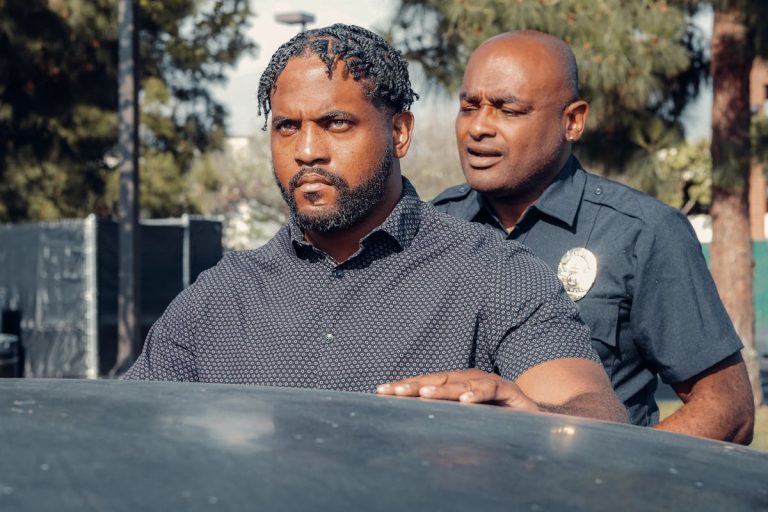Understanding the statute of limitations for sex crimes in Arizona requires careful navigation through complex legal frameworks. The timeframes for pursuing justice in such cases can vary greatly, influenced by factors such as the severity of the offense, the date it occurred, and the existence of DNA evidence. While certain crimes have no limitations, others must be prosecuted within a specific window. This raises important questions on the rationale and impact of these laws on victims and defendants alike. As we explore this topic, let’s examine the intricate dynamics of these regulations and their implications.
Understanding Statute of Limitations
Grasping the concept of the statute of limitations is vital when considering sex crimes in Arizona. By legal definitions, a statute of limitations determines the duration of time within which legal action can be pursued against an alleged offender. This time frame varies based on the severity of the crime and the state laws.
In the context of sex crimes, Arizona law is distinctive. The state abolished the statute of limitations for several sex crimes committed after July 1, 2001. This includes crimes involving minors, such as child molestation and sexual conduct with a minor. However, for crimes committed prior to this date, the statute of limitations is still applicable.
Victim advocacy groups have lauded this development, noting that it recognizes the often-traumatic process victims undergo before they can report such crimes. It also guarantees that perpetrators can be brought to justice regardless of when the crime was reported. Nonetheless, understanding the nuances of the statute of limitations is vital both for victims seeking justice and those accused, as it directly impacts the legal processes involved. This aspect forms a pivotal part of sex crime legislation in Arizona.
Defining Sex Crimes in Arizona
Having explored the concept of the statute of limitations in the context of sex crimes in Arizona, we now turn our attention to the precise definition of these crimes within the same jurisdiction. In Arizona, sex crimes encompass a broad range of offenses, each defined by specific legal definitions and classified according to the severity of the crime.
The Arizona Revised Statutes (ARS) offer distinct classifications for sex crimes. The legal definitions include, but are not limited to, sexual assault, sexual abuse, indecent exposure, and child molestation. Each crime classification comes with a specific set of elements that the prosecution must prove for a conviction.
Sexual assault, for instance, is defined as knowingly engaging in sexual intercourse or oral sexual contact with any person without consent. Sexual abuse, on the other hand, involves intentionally or knowingly engaging in sexual contact with any person who is fifteen or more years of age without the consent of that person.
These definitions and crime classifications are critical in determining the applicable penalties and the timeframe within which legal proceedings must be initiated. Understanding these definitions aids in maneuvering through the complex landscape of sex crimes legislation in Arizona.
Arizona’s Sex Crimes Time Limits
Understanding the time limits for prosecuting sex crimes in Arizona is essential, as these limits can greatly impact both the accused and the victim. The state laws outline specific time frames within which a sex crime must be reported and prosecuted. These range from no time limits for serious offenses like sexual assault involving minors to shorter periods for other forms of misconduct.
Victim advocacy groups have played a significant role in shaping these legal boundaries. Their persistent efforts have led to legal reforms that extended time limits for certain crimes, allowing victims more time to come forward. This is important considering the psychological trauma often associated with sex crimes, which may delay victims in reporting the crime.
However, the time limits also serve to protect the accused from facing charges for an alleged crime committed a long time ago, when evidence may be scarce or unreliable. It’s a delicate balance between ensuring justice for victims and preserving the rights of the accused.
Factors Influencing the Statute
The statute of limitations for sex crimes in Arizona is not a static figure but is influenced by several factors. These factors shape the legal interpretations of the statute, and each plays a significant role in determining the time frame within which a prosecution for a sex crime can commence.
Three primary factors influencing the statute of limitations for sex crimes in Arizona include:
- The nature of the crime: More serious offenses, such as rape, often have longer statutes of limitations compared to lesser crimes. In some cases, there may be no statute of limitations at all.
- The age of the victim: For crimes against minors, the statute of limitations usually begins to run once the victim reaches the age of majority.
- The discovery of the crime: In some instances, the statute of limitations may not start until the crime has been discovered, particularly in cases where the victim was unaware of the crime.
Understanding these factors offers an analytical view of how Arizona’s legal system approaches sex crimes. The intention is to balance the rights of the accused with the necessity to punish serious crimes and protect victims.

Evolution of Arizona’s Sex Crime Laws
Over the years, Arizona’s sex crime laws have undergone significant transformations in response to societal changes and advancements in understanding sexual offenses. The historical context reveals a trend of escalating severity in punishments and expanded definitions of what constitutes a sexual offense.
Early laws were relatively lenient and narrow in scope, reflecting a societal view of sex crimes as less serious than they are recognized today. However, as the understanding of the profound harm caused by these offenses grew, so did the legislative response. Changes began to appear in the later part of the 20th century, with laws becoming more stringent and encompassing a broader range of offenses.
These legislative changes were driven by a combination of factors, including increased public awareness and advocacy, evolving societal norms, and high-profile cases that exposed flaws in the existing laws. The evolution of Arizona’s sex crime laws demonstrates a dynamic and responsive legal system, adapting to the changing societal understanding of sexual offenses.
As the laws currently stand, they offer a robust framework for protecting victims and punishing offenders. However, they continue to evolve in response to new challenges and understanding in the field of sexual offenses.
Exceptions to the Statute
In the context of the statute of limitations for sex crimes in Arizona, there exist certain exceptions that warrant attention. These exceptions primarily revolve around child victims, the presence of DNA evidence, and instances of delayed reporting. Each of these exceptions carries nuanced legal implications, which we will elucidate in the following sections.
Child Victims Exceptions
Exceptional circumstances often prevail when it comes to addressing sexual offenses against minors in Arizona. The state law embodies these exceptional cases through Child Victims Exceptions. This legislation focuses primarily on child advocacy, placing the welfare of the child at the forefront of legal matters. Legal reforms have been instrumental in structuring this exception, offering a more thorough approach to handling cases involving minors.
- Arizona law allows for an extended reporting period for child victims. The statute of limitations does not begin until the victim has turned 18, or the offense has been reported, whichever comes first.
- The law also recognizes the traumatic impact on a child, therefore allowing for an extended period of seven years for the victim to report the crime after they turn 18.
- In cases where the accused is a parent, guardian, clergy, or in any position of trust over the minor, there is no statute of limitations.
These exceptions underscore Arizona’s commitment to ensuring justice for child victims of sexual offenses. The state’s legal framework demonstrates a keen understanding of the unique challenges faced by child victims, proving its dedication to child advocacy and justice.
DNA Evidence Exception
Arizona’s jurisdiction extends beyond the norm when it comes to the statute of limitations for sex crimes, particularly in instances involving DNA evidence. This broadened temporal scope is due to the “DNA Evidence Exception,” a provision that allows the statute of limitations to be suspended when DNA collected from a sex crime scene matches the DNA of a named suspect.
The advent of forensic advancements has revolutionized the legal landscape, extending the reach of justice. DNA collection, in particular, has emerged as a highly effective tool in identifying perpetrators, even years after the crime has been committed. This highlights the importance of DNA evidence in cases where the victim may have been unable to report the crime immediately.
In Arizona, the DNA Evidence Exception allows prosecutors to file charges within one year of the establishment of a DNA match, regardless of when the crime was committed. This exception is a demonstration of the recognition of the unerring precision and reliability of DNA evidence in modern-day criminal investigations. It underscores Arizona’s commitment to victim rights and holding perpetrators accountable, irrespective of the time elapsed since the crime.
Delayed Reporting Cases
While the DNA Evidence Exception provides a valuable tool for prosecuting sex crimes in Arizona, another important provision comes into play when victims delay reporting these egregious acts. This provision, often referred to as the Delayed Reporting Exception, recognizes the unique challenges faced by victims of sex crimes, and the difficulties that often surround the process of delayed disclosure.
The Delayed Reporting Exception is designed to offer victim support throughout the legal process. It allows for prosecution in cases where the victim was unable to or chose not to immediately report the crime due to fear, embarrassment, or manipulation by the perpetrator.
Key points of the Delayed Reporting Exception include:
- In cases where the victim is under 15, the prosecution can occur at any time.
- If the victim is 15-18, the prosecution must occur within 7 years of the offense.
- For victims who are 18 or older, the prosecution must take place within 7 years of the disclosure.
The Delayed Reporting Exception provides an essential balance, acknowledging the complex emotional factors that can lead to delayed disclosure, while still ensuring the potential for justice to be served.
Impact on Victims and Defendants
The impact of the statute of limitations for sex crimes in Arizona extends beyond the legal domain, deeply affecting both victims and defendants. On one hand, the emotional consequences for victims are profound, influencing their willingness and ability to pursue justice. On the other hand, the statute provides defendants with certain legal protections, raising critical questions about the balance between individual rights and societal justice.
Emotional Consequences for Victims
Sexual violence leaves a profound, lasting impact on victims, often manifesting in severe emotional trauma. The emotional consequences are profound and often enduring, affecting every aspect of a victim’s life. It’s essential to understand these psychological repercussions to provide effective victim support and navigate the path of trauma recovery.
The emotional consequences of sexual violence can include:
- Chronic depression: Victims may experience long-term sadness, loss of interest in usual activities, and suicidal thoughts. Professional help through counseling or therapy is essential.
- Post-Traumatic Stress Disorder (PTSD): This disorder is characterized by intense flashbacks, nightmares, and severe anxiety. Victim support services can assist in managing these symptoms.
- Relationship difficulties: Trust issues and fear of intimacy can disrupt victims’ personal relationships, leading to isolation and loneliness.
The role of victim support is indispensable in trauma recovery. It’s paramount that the support system understands the gravity of these emotional consequences. In addition, the legal system needs to be considerate and sensitive to these emotional impacts while handling such cases. It’s critical to balance the scales of justice with compassion for the victims and their emotional well-being.
Legal Protection for Defendants
Understanding the emotional consequences of sexual violence naturally leads us to examine the legal protections in place for defendants. Arizona law, like many jurisdictions, is structured to guarantee a fair trial for all parties involved, including those accused of sex crimes. This principle is embedded in the concept of defendant rights, which entail a broad range of legal remedies aimed at protecting individuals from potential miscarriages of justice.
These rights include, but are not limited to, the right to a fair trial, the right to legal representation, the right to remain silent, and the right to confront and cross-examine witnesses. These legal remedies serve to uphold the principle of ‘innocent until proven guilty’, a cornerstone of our legal system.
Furthermore, the statute of limitations for sex crimes in Arizona is part of these legal protections. The time limit is designed to promote fairness in legal proceedings by preventing prosecutions based on evidence that may have deteriorated over time.
The defendant rights and legal remedies consequently contribute to the overall balance in the justice system, guaranteeing that the rights of victims and defendants are duly considered and protected.
Limitations’ Effect on Justice
Drawing from the established legal protections for defendants, the statute of limitations for sex crimes in Arizona greatly impacts both victims and defendants within the justice system.
The effect on justice manifests in three critical areas:
- Victim Advocacy: The statute’s time restrictions may discourage victims from coming forward, thereby undermining victim advocacy efforts. The psychological trauma of sex crimes often delays reporting, and the statute may inadvertently protect offenders while leaving victims without recourse.
- Legal Reforms: The statute’s limitations have prompted legal reforms, including exceptions for certain crimes or circumstances. These changes reflect the evolving societal understanding of the complexities of sex crimes, but also pose challenges in balancing victim rights with defendant protections.
- Impact on Defendants: While the statute aims to protect defendants against stale or delayed claims, it may also contribute to wrongful convictions if evidence deteriorates over time.
Case Studies in Arizona
Several notable instances of sex crimes in Arizona have highlighted the application of the state’s statute of limitations. High profile cases often gain public attention, bringing light to the intricacies of the legal process. One such case involved a well-known businessperson who was accused of a sexual offense dating back two decades. The prosecution faced significant challenges due to the extended time lapse, demonstrating the complexities of enforcing the statute of limitations in sex crime cases.
Victim advocacy groups have played an essential role in these cases, providing much-needed support for the survivors. In a recent case, the advocacy from these groups led to a review of a dismissed case due to the statute’s expiration. These groups continue to push for reforms, arguing that the current limitations can sometimes prevent victims from obtaining justice.
The analysis of these cases underscores the importance and potential complications of the statute of limitations in sex crimes within Arizona. It highlights the need for a careful balance between protecting victims’ rights and ensuring fair legal processes for the accused.
Frequently Asked Questions
What Are the Potential Penalties for Sex Crimes in Arizona?
In Arizona, penalties for sex crimes can include imprisonment, fines, probation, and mandatory registration as a sex offender. Victims have rights, including legal representation, to guarantee justice is served and their safety prioritized.
Can a Case Be Reopened if New Evidence Is Discovered?
In Arizona, the discovery of new evidence can potentially lead to the reopening of a case. However, this largely depends on the nature of the evidence, its credibility, and its relevance to the original case proceedings.
How Does Arizona Classify Different Degrees of Sex Crimes?
Arizona classifies sex crimes into different degrees based on severity. The legal distinctions involve definitions of specific acts, victim’s age, and perpetrator’s intent. Each degree carries unique penalties, reflecting the gravity of the offense committed.
Whats the Process to Report a Sex Crime in Arizona?
In Arizona, reporting a sex crime involves contacting law enforcement promptly. Authorities will then initiate an investigation. Concurrently, victims may seek assistance from local victim support services for counseling and legal guidance throughout the process.
Are There Resources Available for Victims of Sex Crimes in Arizona?
Yes, Arizona provides numerous resources for victims of sex crimes, including victim support services and legal advocacy groups. These organizations offer counseling, help with reporting crimes, and assistance maneuvering the legal system.





